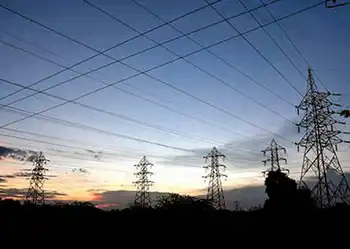Illinois asks FERC to reopen Edison Mission inquiry
By Reuters
Electrical Testing & Commissioning of Power Systems
Our customized live online or in‑person group training can be delivered to your staff at your location.

- Live Online
- 12 hours Instructor-led
- Group Training Available
The Federal Energy Regulatory Commission in May settled with Edison Mission after a two-year investigation. It found that the unit of Edison International did not cooperate with the FERC investigation of its power sales practices in the PJM Interconnection gird area, which covers 13 states.
Edison Mission agreed to pay $7 million in civil penalties for hindering the FERC investigation and also committed to developing a program to ensure compliance with market regulations, which is expected to cost about $2 million.
Illinois Attorney General Lisa Madigan's office filed a motion calling for FERC to reopen the investigation into Edison Mission's trading behavior.
Illinois, along with power organizations in seven other states, asked FERC to reopen its investigation on the charges of marketing malfeasance by Edison Mission Energy in selling power into day-ahead and real-time power markets.
Susan Hedman, environment and energy counsel in the Illinois attorney general's office, said when the FERC order came out in May, she called cohorts in other states. She and her counterparts were dismayed that FERC only ruled on the method of reporting trading behavior by Edison Mission and did not address whether Edison Mission's practices were unlawful or unethical.
"That's one of the puzzling things about the FERC order," Hedman said.
FERC has 30 days to respond to the motions to reopen the investigation, said Barbara Connors, spokeswoman for FERC. She would not comment on claims that FERC ignored the core of the matter regarding Edison Mission market behavior.
Edison Mission sold power generated by another Edison International arm, Midwest Generation, which has about 6,000 megawatts of power generation units in Illinois.
The company admits that it sold power using a "high offer strategy," in which it offered its power at $999 per megawatt-hour - near the PJM market cap of $1,000 per MWh. Power sold in the day-ahead market in the PJM region including Illinois generally sells for less than $100 per MWh.
Doug McFarlan, spokesman for Edison Mission, said the company employed such marketing strategy to meet PJM rules while still having the power to meet contractual obligations in the real-time market, where the power was sold at competitive rates.
McFarlan said Edison Mission stopped such practices in April 2006, and that it followed all market rules before and after that date.
But the Illinois motion said, "Edison Mission did not cease the high offer strategy in April 2006."
McFarlan said the consultant hired by Illinois to look into PJM market data is mistaken and Edison Mission can show that market data indicating that power sales near the $1,000 bid cap since April 2006 are not related to his company.











